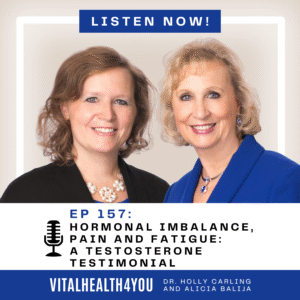The coffee industry spends lots of money to convince you of the health benefits of coffee. And while there does appear to be some minor benefits, the detriments, in my professional opinion, outweigh the benefits.
Excessive coffee intake (varies, but the most common opinion is 2 cups per day), can lead to a variety of health problems. I believe it is far less than that when you consider the compounding effects. The caffeine isn’t the only problem, but certainly a big one. Caffeine can cause anxiety, restlessness, irritability, and sleep disturbances. It does it by stimulating the central nervous system, leading to increased heart rate, elevated stress hormones such as cortisol, and depression of melatonin, your sleep hormone. Speaking of sleep hormones, caffeine also blocks a neurotransmitter called adenosine, which promotes sleep. This reduces sleep quality, duration, and ability to fall asleep. Adenosine is what turns your brain off. Adenosine also plays a role in reducing pain, inflammation, and modulating mood.
The acids in coffee can stimulate heartburn, reflux, and damage the delicate lining in the stomach. Coffee can also cause vasoconstriction and elevated heart rate, putting an excess load on the heart, temporally raising blood pressure.
Coffee interferes with nutrients: B vitamins, calcium, zinc, magnesium and iron especially, but there are others. This nutrient depletion can lead to osteoporosis, negative cardiovascular effects, disruption in brain health, mood instability, hormonal imbalances, and slower immune response.
The hormones negatively impacted include: cortisol (can contribute to chronic stress, weight gain, anxiety and immune suppression); adrenaline (increased heart rate, chronic stress, and due to the bursts of energy, it leads to fatigue, irritability and over time, adrenal exhaustion); insulin (due to adrenaline and cortisol spikes, can lead to higher blood sugar levels and insulin resistance); dopamine (enhances mood, feelings of pleasure, and improved focus, but over time, that reverses, or the body becomes dependent upon it to increase dopamine); estrogen (could be problematic with estrogen-type cancers); melatonin (see above) and serotonin (mood-enhancing – over time it may deplete serotonin stores, leading to depression, mood disturbances and irritability). It also disrupts the microflora in the gut, and damages the lining, leading to gut disorders such as IBS and leaky gut.
With all this, I am especially concerned when caffeine no longer elevates mood or energy, nor effects sleep.
There are some good coffee alternatives: The favorites are Gano, RASA, Teeccino, Dandy and other roasted blends. Getting blends with ginseng or ashwagandha help with the energy piece, without being a stimulant.
While there can be some temporary benefits to coffee, the detriments appear to be worse. My patients who stop drinking coffee are often surprised at how their energy returns, their moods stabilize (improve), they sleep better, aren’t irritable and overall, just feel better. You can too.
Want to hear more from Dr. Carling? Check out our podcast. Search for VitalHealth4You on your favorite podcast listening app or go to vitalhealthcda.com/podcasts/
©2024 Holly A. Carling, O.M.D., L.Ac., Ph.D.







